Hockey Parent’s Guide to Fitting Shoulder Pads
In the physical nature of hockey, it is important to have properly fitting shoulder pads. One of the common tendencies when fitting shoulder pads is to look at the shoulder caps themselves. While this is important, there are many other factors to look at when evaluating the fit of a shoulder pad. Below are some of the key features of a good shoulder pad:
- Shoulder Caps- Shoulder caps come in many different shapes and sizes. One of the common misconceptions is that a bigger shoulder cap is more protective. Bigger is not necessarily better. Many shoulder pads now come with a more tapered fit around the shoulder, but offer the same level of protection. You want to make sure the shoulder caps sit directly on top of the shoulders. A shoulder pad that is too large, will slide down the arms of the player and will be more susceptible to shifting around. One that is too small will not properly cover the shoulder.
- Clavicle Protection- Many shoulder pads do not come with a reinforced clavicle protection, so it is important to make sure that there is a reinforced piece of protection over the collar bone. A good shoulder pad will offer this protection.
- Upper Arm Protection- This part of the shoulder pad is often adjustable, and can be slid up and down to offer the best overall protection for the upper arm. The arm of the shoulder pad should meet the top of the elbow pad to ensure the most quality fit.
- Sternum Protection- One of the often overlooked pieces of protection is the sternum. A quality shoulder pad will contain a reinforced piece of padding directly over the sternum area. Many cheaper shoulder pads will offer limited or no protection through this area of the chest.
- Spine Protection- Another extremely important piece of the shoulder pad is the spinal protection. A quality shoulder pad will have a reinforced padding all the way down the spinal cord to ensure protection in an extremely sensitive area of the body. A cheaper shoulder pad will not contain this piece of padding.
Fit Instructions- You want to make sure that the shoulder caps sit directly over the shoulder bone, fully covering the collar bone on each side. The upper arm should meet the top of the elbow pad to fully cover the arm. The shoulder pad should also cover down to at least the middle of the stomach in the front, and midway down the back, where it should meet the hockey pant for full back and kidney protection.
Custom Team Jerseys and Apparel
Looking for custom team apparel? We offer a variety options including embroidery, screen printing and sublimated printing. We can put your custom logo on essentially anything, including:
- Team Jerseys
- Team Shells
- Sweatshirts
- Sweatpants
- Rink Suits
- Baseball Hats
- Pompom Hats
- Sandals
- And More!
Below are some examples of the customized apparel we have done for various teams and organizations.
Call us at 781-646-1600 or email at info@sportsetc.net for more information or a quote!
- PomPom Hat
- Bauer Mesh Back Hat
- Wizards Sandals
- Winchester Hockey Bag
- Winchester Pompom Hat
Hockey Parent’s Guide to Fitting a Helmet Properly
As a parent, there are many things to think about when outfitting your hockey player. With all that we know about concussions, the most important piece of equipment is the hockey helmet. There are a few important pieces to focus on when fitting a hockey helmet. Most notably- proper fit, protection level and life span.
Proper fit: A proper fitting helmet should fit snugly on the player’s head. Any sign of a helmet rattling around, or fitting too loosely can be a major issue. Hockey players can take a variety of impacts, and a helmet that does not sit tightly on the head can lead to a variety of dangerous scenarios. Mainly, the helmet being dislodged from the player completely.
One of the commonly overlooked aspects of fitting a helmet, is how the cage fits onto the helmet itself. Many helmets are sold in “combo” form, with a cage already attached, but it is important to know that sometimes cage size and helmet size are not always consistent with each other. That is why we recommend buying the cage and helmet separately, to ensure the absolute best fit. The cage should sit right on the player’s chin, and should be firmly locked into the “J-Clips” on the side of the helmet. This ensures that the cage will not be driven into the players chin upon impact- which is a common factor in concussions.
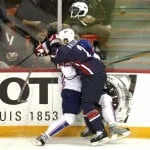
Protection Level: Hockey hits come in all types, sizes and intensities. Often times, it is not necessarily the biggest hit on the ice that causes injury, but the most “awkward” hits. Different types of protection levels are essential in preventing concussions. Most helmets on the market help to protect against linear or direct impacts to the head. The difference between the cheaper and more expensive helmets though, is the quality of the foam used within the helmet. The best type of foam to look for is layered EPP or Poron. Most helmets in the $120+ range contain these materials. Low-end helmets often contain one layer of standard VN foam, which loses protective capability over time as it hardens.
The one aspect that differentiates the BEST helmets, from the lower-end helmets, is a helmets protection level against rotational impacts. Most helmets can withstand a linear or direct impact, and can sufficiently protect the player, but the rotational impacts typically have a more devastating impact on a players head. There are numerous helmets on the market that take this into account- most notably the Bauer Re-Akt series and the CCM Resistance series. These technologies help the head move independent of the helmet, so the awkward angle impacts, which cause the head to snap around with the helmet are mitigated.

Life Span: Another critical and overlooked area in preventing concussions, is paying attention to the “life span” of a helmet. Routinely, a player can wear the same size helmet for years and years. A lot of times, a youth hockey player can stay in that same size helmet until adulthood. Just like anything that gets worn down over time, a hockey helmet needs to be re-examined and at times replaced completely. The important piece to look at, is the foam within the helmet. The foam is designed to take repeated impacts, but over time as the impacts increase, and sweat is absorbed and dried out into the material- the foam hardens. As the player takes an impact, this hardened foam is driving into the head, which can cause major head trauma.
Gallery
New Bauer Nexus 1N Stick Available September 2015!
The exciting new Bauer Nexus lineup of sticks featuring the Nexus 1N will be available September 2015. More details coming soon!
How Do You Properly Fit Hockey Skates?
When it comes to a hockey player’s performance, properly sized skates are a very important piece of the game. When a player wears a skate that is not sized correctly or is uncomfortable, it can cause blisters & discomfort. To avoid this, you want to ensure your skates are properly sized.
Having strong ankle support, with good stability, is vital to a correctly sized pair of skates. You want your skates to have a solid exterior to protect your feet from other skates & pucks. A strong boot also provides proper alignment so your ankles do not lack support. Usually, your skates should be about 1 ½ sizes smaller than your normal shoe size. As you try on skates, try to wear socks similar to the ones you would wear while playing hockey.
When fitting youth skates, you want to be able to place a finger in the middle of the heel of your foot & the boot. This allows room for growth in the skates. Next, kick your heel into the back of your boot. Keeping your foot flat on the ground, tightly lace your skates so your foot stays firmly in place.
Walk around in your skates to check the comfort of them. It is important to focus on a few things. You want to make sure that your heel is laying flat and not moving around when you walk. You should have a little bit of space in the toe (if your toe is lightly brushing the toe box that is okay). This ensures that the skate is the proper length. Likewise, it is also important to make sure that the width is not too tight or too loose. Skates come in many different widths depending on the make of the skate. The skate should fit snugly, but should not feel like it’s digging into the side of the foot.
Most skates are now heat moldable, so the break-in process has become much easier, but it can take a few wears to break in your skates.
For more questions on properly fitting your skates, you can contact us at 781-646-1600 or stop by our Arlington store.
Fit To Fly! CCM JetSpeed Skates Available Now!
The New CCM JetSpeed skate line is here! These skates prove that great speed starts with a great fit! The new Rocketframe construction helps deliver a close fit and a precise heel lock to break the sound barrier on ice! Players like Patrice Bergeron and Connor McDavid already know what it’s like to be Fit To Fly! Come in and test drive a pair of JetSpeed skates and not only get an exclusive 30 satisfaction guarantee but we’ll throw in a free CCM hat just for trying a pair on! Get Ready For Takeoff!
Made of Hockey: CCM Protective Equipment
The CCM protective equipment continues to be the lightest, strongest and most comfortable hockey equipment on the market today. Similar to the way Bauer excels in the skate category, CCM holds steady as the industry leader in shoulder pad, elbow pad, shin pad and hockey pant sales.
Much of the CCM protective equipment is modeled after the legendary Jofa Hockey brand, which was acquired by Reebok/CCM. Jofa was highly popular throughout the NHL for many years, and their style of equipment lives on today through the CCM brand.
The CCM Crazylight U Foam technology creates an extremely light feel to their equipment, while the water resistant material doesn’t retain sweat, which can weigh a player down during a hockey game. While many different brands produce shoulder pads and elbow pads that can be unnecessarily bulky and large, CCM understands that hockey is a game of speed. The reduction in weight and size of their product is ideal for the best on-ice performance. All of this is done without compromising the protection of the player.
When it comes to choosing the best protective hockey equipment based on comfort and protection, CCM is the consensus pick from the staff at Sports Etc.
Goalie Gear Made Exclusively For Sports Etc!
For 35 years we have been working with goalies and goalie manufacturers to bring the best selection of quality gear to our customer base. On occasion we like to sit down with our best suppliers to come up with gear that can’t be purchased out of a catalog. This allows us to present to our goalies something unique that will give them features and advantages that would otherwise not be available without doing their own custom design. For the 2015 season we are presenting our best selection of exclusive gear ever, including the pro goalie inspired Vaughn Vision pro catcher, the throwback Brian’s G-Netik B-Star gear and the CCM Extreme Flex II leg pads featuring an exclusive graphic and a double external break not found in the catalog version. To check out these and other unique exclusives check out our Goalie Exclusives Page!
Sports Etc Review: The Bauer Vapor 1X Hockey Skate
The Vapor 1X skate from Bauer has officially hit the market, and a few of the Sports Etc guys were lucky enough to have the chance to try them out. Bauer has made numerous changes to the Vapor skate line, but these were a few major takeaways from the staff after their time on the ice:
- New and Improved Tongue: The tongue on the Vapor 1X skate has undergone some positive changes from its APX 2 counterpart. The APX 2 had a 52 oz. felt tongue, which we felt limited some of the forward lean that is needed to help generate a powerful stride on the ice. The new tongue has been thinned out and a Curv composite insert has been added. This makes the tongue more similar to that of the Bauer Supreme MX3. This new and improved tongue allows for a better forward lean, as well as a more moldable material for a more comfortable fit.
- LS4 Steel: The 1X features the brand new LS4 steel, which is 3mm higher than any other steel from Bauer. The higher pitch to the blade allows for a tighter and quicker turning radius.
- Heat Moldable Footbeds: The all new heat moldable footbeds are exclusive to Bauer and the Vapor 1X skate. This makes the 1X skate truly 100% heat moldable as the “Bauer Speed Plates” mold to the bottom of your foot, while the Curv composite boot molds around the foot itself.
Bauer continues to push the limit with changes in the hockey industry and they are consistently coming up with innovative ways to change the performance of their hockey skates. We can confidently say that the Bauer Vapor 1X skate is an improvement from the APX2, and we feel strongly that customers will enjoy the added benefits of this high performance skate.
Behind the Scenes: Vaughn Custom Goalie Pads
When it comes to custom goalie pads, nobody does it better than Vaughn Hockey. Recently, Vaughn gave us a behind the scenes peek at the manufacturing process for one of our goalie customers, Casen Janko of Matignon High School.
The process begins with the custom design from the goalie themselves. In this case, Casen went with a vintage cali-tan set up, which mimics the original leather look that we sold back in the 1980s!
Vaughn brings the pad to life by cutting the outside design of the pad wrap, and hand-stuffing it with high density foams. The goalie pad is tightly sewn back together to give a rigid and firm shape for unmatched durability.
The hand-made process allows for an extreme attention to detail, which creates consistently high quality goalie pads. When we visited Vaughn Custom Sports in Oxford, Michigan it became clear that owner Mike Vaughn cuts no corners when it comes to making goalie equipment. He routinely checks the quality of the materials that go into his goalie pads himself in his personal workshop. Trust us- we’ve seen it firsthand; the same effort and attention to detail goes into making a pad for Tuukka Rask or Jonathan Quick, as it does for any customer off the street.
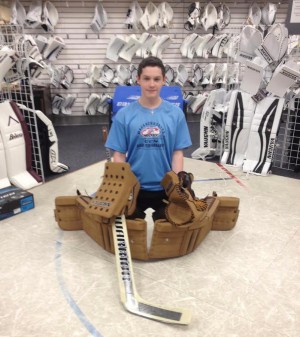
The resulting product for customers like Casen Janko is the reason that goalie customers keep coming back to Vaughn, and it is the reason why nearly 77% of NHL goalies are wearing at least 1 Vaughn goalie product.

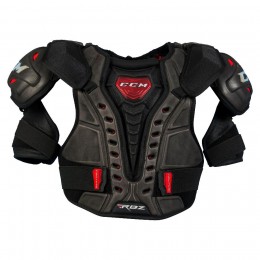
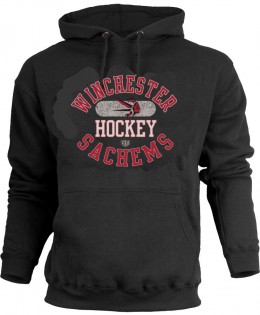
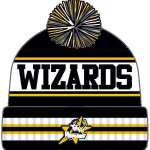
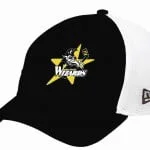
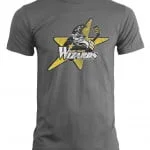
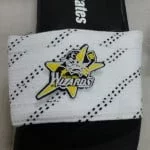
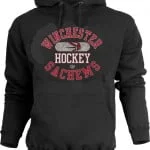
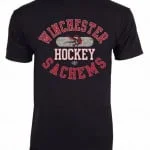
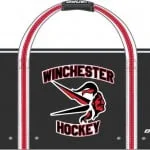
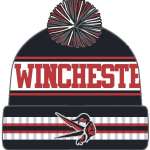
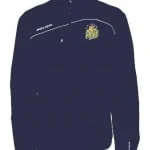
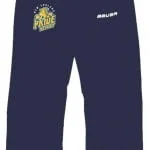
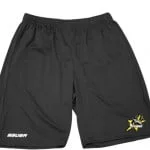
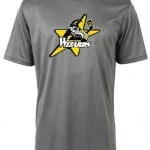
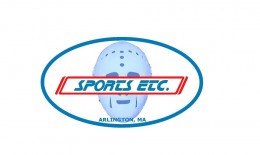
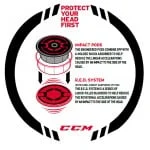




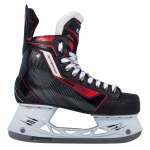
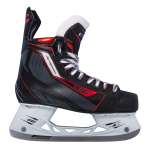
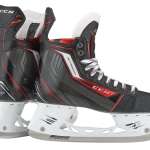

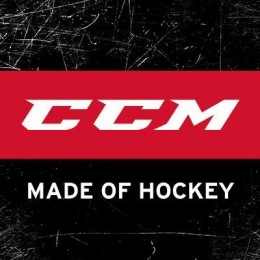
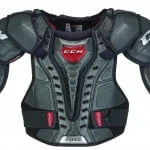

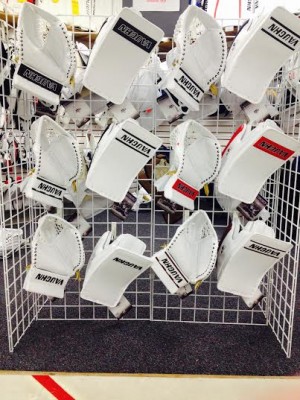
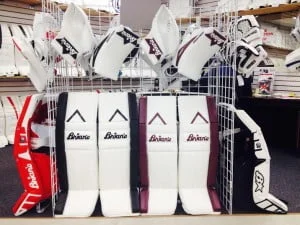
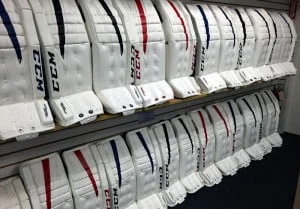
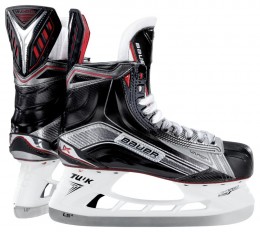
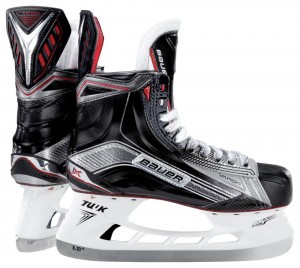
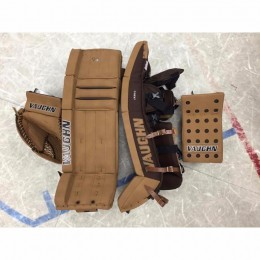
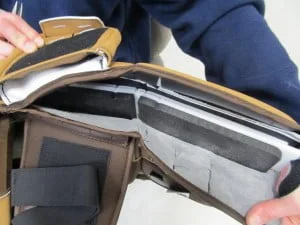
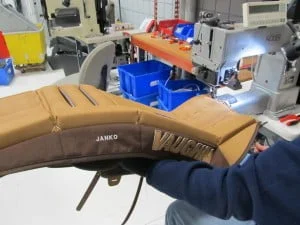
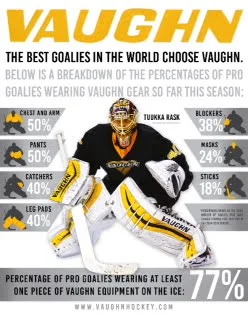
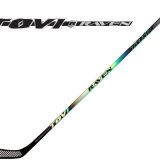







 Location:
Location:  Phone:
Phone:  Email: info@sportsetc.net
Email: info@sportsetc.net